Trade the Congressional Effect: How To Profit from Congress’s Impact on the Stock Market
$31.30
Trade the Congressional Effect skillfully details how you can profit from Congress’s impact on the stock market. Along the way, it puts this approach in perspective and gives you all the tools you’ll need to profitably incorporate it into your investing endeavors. Singer walks you through the process of trading the Congressional Effect and provides practical guidance regarding the possible pitfalls and opportunities you’ll face each step of the way.
Introduction:
Congressional talk is not cheap. In the summer of 2011, the awful spectacle of Congress’s inability to timely resolve the budgetary issues regarding our debt cap and the resulting downgrade of United States debt took a heavy toll on the stock market. What is so disturbing is that in their brinksmanship, our lawmakers never seem to consider just how much their actions cost us. What is truly upsetting is the amount of wealth destroyed merely by political talk, even when that talk doesn’t lead to action. This wealth destruction is the Congressional Effect. It is empirically demonstrated in the aggregate by looking at how the stock market is affected on a daily basis by Congress. In turn, this broad Congressional Effect is generally comprised of a series of legislative impacts on sectors and, sometimes, individual companies.
From 1965 through 2011, measuring each of the 11,832 trading days during that period, the price of the Standard & Poor’s (S&P) 500 Index rose at an annualized rate of less than 1 percent on days Congress was in session, but over 16 percent on days they were out of session. This enormous difference between in-session days and out-of-session days is not coincidental, but rather reflects the cumulative effect of unintended adverse consequences on the U.S. stock market from anticipated and actual congressional legislative initiatives.
Whenever Congress focuses on an industry with the potential for changing the rules for that industry, investors have to discount what Congress may or may not do to change the business plan of the companies in that industry. Some investors wait for the final version of the new rules so they have more certainty about the business models of the companies before they buy. But sellers often have to sell for reasons having nothing to do with the latest news about an industry. When there are disproportionately more sellers than buyers, you have periods of underperformance, which happens much more frequently when Congress is in session.
All of this is aggravated by the sheer number of opportunities for Congress to make news. Since there are 535 members of the House of Representatives and the Senate, with 23 House committees and 104 House subcommittees, and 17 Senate committees with 70 subcommittees, there are many industries that Congress can affect on any given day.
This book looks at the Congressional Effect in depth, and offers several strategies for how to optimize your portfolio. Once you understand the nature of the incentives that each politician has that collectively result in Congress’s relentlessly working against your portfolio, you can better use their efforts to your advantage. The rest of this chapter describes how the theory of Congressional Effect was discovered and the evidence supporting it.
Contents:
- What is the Congressional Effect?
- The Congressional Effect and the Limits of Modern Portfolio Theory
- Congressmen as Issues Entrepreneurs
- Behavioral Finance, the Stock Market, and Congressional Dysfunction
- If Congress is Malfunction Junction, What’s its Function?
- Where Will Washington Strike Next?
- Sidestepping Congress’s Wealth Destruction with a Macro Approach
- Are Democrats or Republicans Better for Your Portfolio?
- Leverging the Election Cycle
- Are Lame Ducks, Impeachments, Resignations, Vetoes, and Litigated Elections Good for the Market?
- More Ways to Dodge Congress’s Stray Bullets
- “ThatGovernment Is Best that Governs Least”
Trade the Congressional Effect: How To Profit from Congress's Impact on the Stock Market By Eric T. Singer pdf
| Author(s) | |
|---|---|
| Format | |
| Pages | 257 |
| Publication Year | 2012 |
5 reviews for Trade the Congressional Effect: How To Profit from Congress’s Impact on the Stock Market
Only logged in customers who have purchased this product may leave a review.


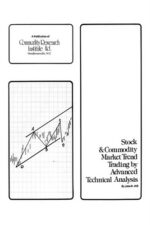
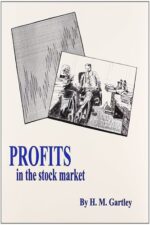
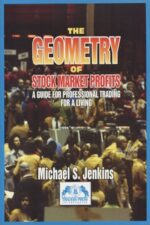
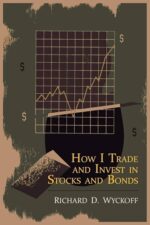

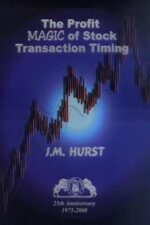


Sutton Schmitt (verified owner) –
Singer has brought fresh insights to the risks that Congress poses for equity investors. Presenting impressive historical data and insights, this book can help with both long term investing strategy and market tactics. A valuable addition to any trading library.
Kenna Holloway (verified owner) –
I do a lot of my own investing in competition with my financial advisor. I bought this book because I wanted to know how Congress affected my stocks. It turns out that Congress has hurt them quite a lot. Over a very long period of time the market goes up 1% when Congress is is session, but 16% when they are on vacation. What??? For real??? Before, I never understood the connection between new laws and industries going down. New laws equal danger for your portfolio. This is a very readable book which made some technical Wall Street stuff understandable, including why the Modern Portfolio Theory is mostly useless. I especially liked the introduction to behavioral economics, as malpracticed by Congress. I especially disliked Congress after reading this book. I think it’s a good idea to read it ahead of a new Congress, which is going to change a lot and soon. You will not like Congress more after you read it, but you will feel like you have a few new ways to protect yourself.
River Harper (verified owner) –
A must have book for Financial Advisors!
Ana Stafford (verified owner) –
Very interesting premise and innovative ideas on how to improve the situation. Too bad the “Congressional Effect” does not seem to pertain to the current President and Congress.
Alfredo O’Neill (verified owner) –
There’s investment books and there’s timely epic publications that are great books in their own right. Value for its content. Timely for taking note of something that’s true, the severity of government intervention in the economy–its massive downward pull on the profit motive and the stock market.